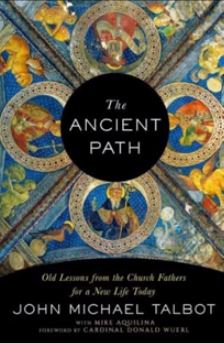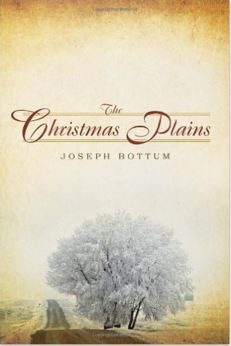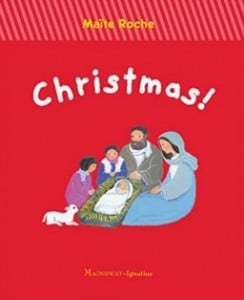When Little Portion Hermitage burned to the ground in 2008, I was working at a treatment center for clergy and religious; and I can still remember the morning when a co-worker popped into my office with a photo of the conflagration.
It was shocking–tongues of flame licking the night sky, destroying the serenity of that holy place.
I haven’t thought about the fire in years, but I was touched anew when I read the deeply personal account from John Michael Talbot. He was there in 2008, watching as the chapel, library and many common areas in the hermitage he founded were destroyed. He wrote of seeing the glow of the fire first through a skylight in the home he shared with his wife Viola on the grounds of the monastic community. When he stepped out the door, he could feel the heat. Talbot and others in his community, the Brothers and Sisters of Charity, watched in disbelief as the fire ravaged their beloved hermitage.
John Michael Talbot is author, along with Mike Aquilina, of a new book on the early Church Fathers, The Ancient Path: Old Lessons from the Church Fathers for a New Life Today. Early in the book, he recounts the story of that terrible fire. He first glimpsed the fiery sky through the skylight of the home Talbot shared with his wife Viola, on the grounds of the monastery. Then, standing in the darkness, he watched as flames shot through the windows. The chapel with its altar, tabernacle and choir stalls was gone, as were the vestments. Talbot’s office, with the community’s records, his music awards, his precious family photographs was gone. But in a special way, he felt the loss of the library. He wrote:
There came one particularly loud boom, and we began to see dozens–and then hundreds–of what looked like little butterflies hovering around us. They were beautiful embers of light. And we realized that they were paper.
“There goes the library,” someone said. “There it goes.”
And that’s when I felt the loss–thousands of volumes, the repository of so much knowledge and tradition, stored lovingly in bank upon bank of stocked bookshelves.
The “butterflies” flitting around us were pages of Cyprian, Origen, Athanasius, Augustine–my spiritual and intellectual companions as I founded the community. The books, with all my marginal notes, were gone.
No doubt, the catastrophic fire shook the community. Much was lost that can’t be replaced. But what Talbot realized is that in a real way, the early Church Fathers are still with him. After spending so many years steeped in their lives, Talbot finds that their words and ideas often arise in his mind and his prayer. After losing all those thousands of volumes, he finds that the witness of the Fathers remains with him, and in many ways is stronger than ever.
* * * * *
The Ancient Path is John Michael Talbot’s way of sharing the wisdom of the Church Fathers, of passing along their legacy. “I had consumed all those many books long before the fire consumed them,” he explained.
“…Now I need to become what I found in them. I need to become all fire, with a blaze that can consume the world” (see Luke 12:49).
One of the candid stories he tells about his own life reminds me a lot of what one encounters in social media these days: the vindictive, self-righteous bigotry of certain types of Christians one meets every day on Facebook and in the combox. Talbot explained his own evolution, from his early days as a rock star to his fundamentalist Christian arrogance. Looking back at that phase of his life, he admits:
“More and more I turned inward, but not always in good ways. My mentors in the Jesus Movement encouraged me to memorize Bible verses that could serve as a sure and inflexible rule of life. My “nice guy” phase was short-lived and gave way to a crabbed, closed, judgmental, obsessive phase. I developed opinions about everything. They were usually negative and usually about how other people were living. And I had a Scripture–or three–to back up every opinion. I became insufferable in a new way. My bandmates would probably have preferred my old arrogance to this Christian variety. But I was sure of my rightness.”
It’s hard to imagine, given his mild disposition today, that John Michael Talbot had fallen prey to the temptation toward judgmentalism.
But as time passed and as he matured in his faith, Talbot met others who could help him to achieve the sanctity he sought. He writes of Fr. Martin Wolter, one of the resident friars at Alverna Retreat Center. “I was impressed,” he said,
“…by what separated him from me: his serenity, his rest in God, and his joyful, humble confidence in a truth that was bigger than he was, bigger than any denomination or historical mvoement–a truth he didn’t have to invent, but only receive.”
He showed, in Talbot’s estimation, what a run-of-the-mill guy could become by the habit of fidelity to the Church of Jesus Christ. As an ordinary Catholic–receiving the sacraments and discerning his particular vocation–he had walked the ancient path, the way of the Fathers.
Talbot sought to become just that peaceful, that joyful–and the early Church Fathers helped him along that road. He drew direction and encouragement from the writings of St. Augustine and St. Benedict, from Pope St. Gregory the Great, from St. John Chrysostom and St. Diadochus.
And his study of the history of the early Church bore fruit. John Henry Cardinal Newman once said, “To be deep in history is to cease to be Protestant.” That was the case for John Michael Talbot, who came to see in the Church Fathers the rudiments of liturgy, of sacraments, of Marian devotion, of the rich traditions of the Church. In the writing of the Fathers, he found moral and ascetical principles which could be applied in modern society.
In short, he became Catholic.
* * * * *
In writing the Foreword for this helpful book, His Eminence Cardinal Donald Wuerl, Archbishop of Washington, said,
“The Fathers continue to speak to what is best in us.”
Cardinal Wuerl praises the easy accessibility of the Fathers in the writing of John Michael Talbot, and encourages readers to take advantage of this well-laid-out wisdom.
The Ancient Path is an inspiring and an entertaining read. I recommend it highly.












